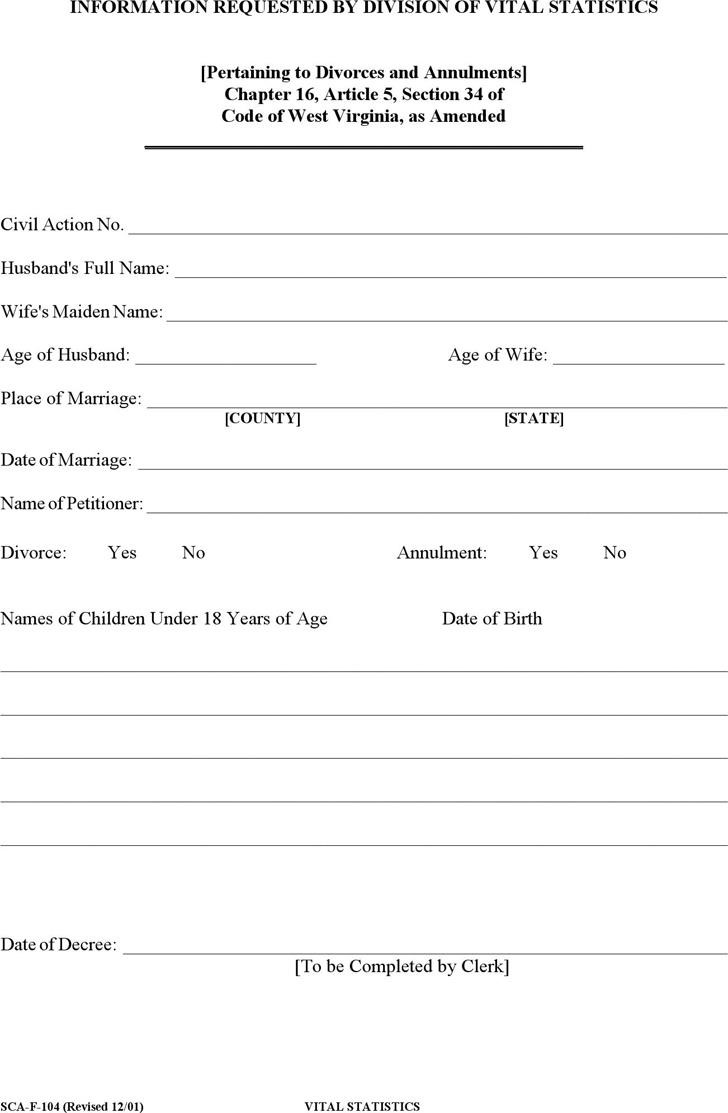bill of complaint for divorce virginia pdf
Filing for Divorce in Virginia⁚ A Guide to the Bill of Complaint
Initiating a Virginia divorce requires filing a Bill of Complaint, a crucial document outlining the grounds for divorce and relevant personal information. This document, often available as a PDF, starts the legal process. Proper completion is vital for a successful filing.
Understanding the Complaint for Divorce
The Complaint for Divorce in Virginia is the foundational document initiating divorce proceedings. It’s a formal legal request to the court to dissolve the marriage. This crucial form demands meticulous completion, as inaccuracies can delay or complicate the process. The petitioner (the person filing) must provide comprehensive personal details, including full names, addresses, and dates of birth for both spouses. Crucially, the Complaint clearly states the grounds for divorce, adhering to Virginia’s legal requirements (e.g., one year separation, or a specific fault-based ground). Accurate and complete information ensures the court has the necessary details to process the petition efficiently. Remember to consult legal resources or seek professional advice for accurate completion.
Required Forms⁚ VS-4 and Others
Beyond the Complaint for Divorce, additional forms are necessary to complete the Virginia divorce filing. The VS-4 State Statistical Form is mandatory, collecting demographic data for state records. This form requires details about the marriage and the divorce, including the grounds for the separation. Other forms may be required depending on the specifics of your case. These could include forms related to child custody, spousal support, or property division. Check the Virginia court website or your local circuit court’s website for a complete list of necessary documents and forms. The availability of fillable PDF versions online facilitates easier completion, but always double-check for the most current versions before submitting your paperwork. Failure to submit all required forms can lead to delays in processing your divorce.
Residency Requirements for Filing
To file for divorce in Virginia, residency requirements must be met. At least one spouse needs to have been a resident of the state for at least six months prior to filing the Bill of Complaint. Furthermore, that same spouse must have resided in a specific city or county within the state for at least three months before filing. These residency periods ensure the court has proper jurisdiction over the case. If the defendant (the spouse against whom the divorce is filed) cannot be located, the divorce can be filed where the plaintiff (the person initiating the divorce) resides. Meeting these requirements is essential for the court to proceed with the divorce case; failure to meet these requirements will result in the dismissal of the case. Confirm these requirements with the court clerk’s office before initiating the process to avoid delays.
Grounds for Divorce in Virginia
Virginia law outlines specific grounds for divorce, which must be stated in the Bill of Complaint. No-fault divorce is possible, requiring a one-year separation period. Alternatively, a fault-based divorce can be pursued, citing grounds such as adultery, cruelty, desertion, or felony conviction. The chosen ground significantly impacts the legal proceedings. Providing sufficient evidence to support the claimed ground is crucial for a successful divorce. The Bill of Complaint must clearly state the chosen ground and provide supporting details. Consulting legal counsel is highly recommended to determine the most appropriate ground and ensure the complaint accurately reflects the situation and complies with Virginia law. Failure to correctly state and substantiate grounds may lead to complications or dismissal of the case.
Completing and Submitting the Forms
After completing the necessary forms, including the Bill of Complaint and VS-4, submit them to the appropriate Virginia Circuit Court clerk’s office, paying the required filing fees.
Accessing and Downloading Necessary Forms
The process of obtaining the required forms for filing a divorce in Virginia often begins online. Many Virginia circuit courts provide downloadable PDF versions of the necessary forms, including the Complaint for Divorce and the VS-4 State Statistical Form, directly on their websites. These websites typically feature a dedicated forms section or a searchable database allowing users to locate the specific documents needed. It’s advisable to verify the most up-to-date versions of the forms, as they may be subject to occasional revisions. Downloading these forms allows for convenient completion at home or in an office setting before submitting them to the court. The availability of fillable PDF versions can significantly ease the completion process. However, if you cannot find the forms online, you may need to contact the clerk’s office directly to inquire about obtaining physical copies or alternative access methods. Remember to always double-check all information before submitting the completed forms.
Filling Out the Complaint⁚ Key Information
Accurately completing the Complaint for Divorce is paramount. The form requires detailed personal information about both spouses, including full legal names, addresses, dates of birth, and Social Security numbers. Crucially, the Complaint must clearly state the grounds for the divorce, adhering to Virginia’s legal requirements. This might involve specifying a period of separation or citing other legally recognized reasons for the dissolution of the marriage. Information regarding the marital assets, including real estate, bank accounts, and personal property, may also be requested, although a separate financial disclosure may be necessary depending on the complexity of the case. Furthermore, details about children, if any, including their names, dates of birth, and current custody arrangements, are essential. Any requests for child support or spousal support should also be clearly stated within the document. Inaccurate or incomplete information can lead to delays or rejection of the filing, potentially prolonging the divorce process. Therefore, it is vital to review all sections carefully before submission.
Filing Fees and Payment Methods
Filing a divorce complaint in Virginia involves associated court costs. The specific fees vary depending on the county and may include a filing fee for the initial complaint and additional charges for subsequent filings or services. It’s advisable to contact the clerk’s office of the relevant circuit court to determine the precise costs before submitting the paperwork. Generally, payment methods accepted include cash, cashier’s checks, and money orders, while personal checks are often not accepted. The clerk’s office should provide a detailed fee schedule outlining all applicable charges. Failure to submit the correct payment can result in delays in processing the divorce petition. It’s prudent to confirm the accepted payment methods and the exact amount due to avoid unnecessary setbacks. Preparing the correct payment beforehand streamlines the filing process and ensures a smoother transition toward finalizing the divorce.

Serving Your Spouse
After filing the divorce complaint, proper service on your spouse is mandatory. Methods include personal service by a sheriff or certified mail; improper service can lead to delays or dismissal.
Methods of Service in Virginia
Virginia law mandates proper service of the divorce complaint on your spouse to ensure they receive formal notification of the proceedings. Several methods exist to accomplish this, each with specific requirements and potential consequences for non-compliance. Personal service, where a sheriff or process server directly hands the documents to your spouse, is the most common and generally preferred method. This ensures confirmation of receipt. Substituted service, an alternative when personal service is infeasible, may involve leaving the documents at your spouse’s last known address or serving another designated individual. Certified mail with return receipt requested provides documented proof of mailing and attempted delivery, although it doesn’t guarantee your spouse received the documents. The choice of service method depends on your spouse’s location and cooperation. Failure to properly serve your spouse can significantly delay or even jeopardize your divorce case. Consulting with an attorney is advisable to determine the most appropriate and legally sound method based on your specific circumstances.
Consequences of Improper Service
Improper service of the divorce complaint in Virginia can lead to significant complications and delays in your case. If a court determines the service was inadequate, it may dismiss your case entirely, requiring you to start the process anew with proper service. This means added time, costs, and potential stress. Even if the case isn’t dismissed, a poorly executed service can cause procedural issues and challenges, potentially affecting the outcome of your divorce. Your spouse might contest the proceedings based on improper notification, delaying resolution. Such issues can also impact rulings on child custody, visitation, spousal support, and property division. To avoid these negative consequences, ensure strict adherence to Virginia’s service requirements. This may involve seeking legal counsel to guarantee proper service and avoid future legal challenges. Proceeding without proper service significantly risks jeopardizing your entire divorce case.

Additional Resources
For assistance navigating Virginia divorce filings, explore online resources like VaLegalAid.org and your local bar association’s lawyer referral service. These offer valuable guidance and support.
Legal Aid and Pro Bono Services
Navigating the complexities of divorce in Virginia can be challenging, especially when dealing with the Bill of Complaint and associated paperwork. Fortunately, several organizations offer invaluable assistance to those facing financial constraints. Legal aid societies provide low-cost or free legal services to individuals who meet specific income requirements. These services might include help with completing the Bill of Complaint, understanding the legal process, and representing you in court if necessary. Many bar associations also sponsor pro bono programs, where volunteer attorneys offer their expertise at no charge to those who qualify. These programs are designed to ensure equal access to justice, regardless of financial circumstances. To find legal aid or pro bono services in your area, you can search online for your local bar association or legal aid society. Remember to thoroughly research any organization before engaging their services, verifying their legitimacy and experience in family law matters. Don’t hesitate to seek assistance; it can significantly impact the outcome of your divorce case. Early intervention can prevent costly mistakes and ensure your rights are protected throughout the process. These resources are crucial in making the divorce process more manageable and accessible for all.
Court Resources and Forms Page
The Virginia court system provides a valuable online resource for individuals navigating the divorce process. Their website offers a dedicated page housing various forms, including the crucial Bill of Complaint for divorce. This centralized location simplifies the process of obtaining the necessary paperwork. The website typically provides downloadable PDF versions of the forms, allowing for convenient completion and printing. In addition to forms, the court’s resources page often includes helpful guides and instructions, clarifying the completion process and submission requirements. This reduces potential errors and ensures compliance with court procedures. Users can often search for specific forms using keywords or form numbers, making navigation efficient. The site might also offer FAQs addressing common questions about divorce filings in Virginia. Before starting the process, thoroughly exploring the court’s resources page can save time and prevent confusion. Remember to check for updates and any changes to forms or procedures, as court websites are regularly updated to reflect current legislation. This ensures you have the most accurate and up-to-date information available to successfully file your Bill of Complaint.
